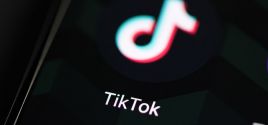Judge says it's OK to use your seized phone to impersonate you and entrap your friendsBy Cory DoctorowBoing Boing Jul. 22, 2012 |
Popular 
Mike Johnson Pushes Debunked Lie That Israeli Babies Were 'Cooked in Ovens' On October 7

'It Has to Be Stopped': Netanyahu Demands Pro-Palestine Protests at U.S. Colleges Be Shut Down

'These Protesters Belong in Jail': Gov. Abbott Cheers Arrest of Pro-Palestine Protesters at UT Austin

Claim Jewish Student Was 'Stabbed In The Eye' by Pro-Palestine Protester Draws Mockery After Video Released

'We Aren't Going Anywhere': TikTok CEO Vows to Fight TikTok Ban in Court
 A federal judge has upheld the practice of police using seized phones to impersonate their owners, reading messages and sending sending entrapping replies to contacts in the phone's memory, without a warrant. The judge reasoned that constitutional privacy rights don't apply to messages if they appear on a seized device -- even if the messages originated with someone who has not been arrested or is under suspicion of any crime: A federal appeals court held that the pager owner's Fourth Amendment rights against unreasonable search and seizure were not violated because the pager is "nothing more than a contemporary receptacle for telephone numbers," akin to an address book. The court also held that someone who sends his phone number to a pager has no reasonable expectation of privacy because he can't be sure that the pager will be in the hands of its owner.It's legal: cops seize cell phone, impersonate owner |



